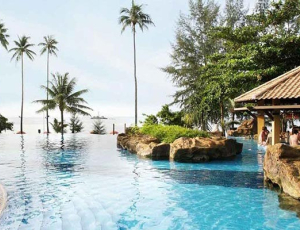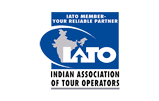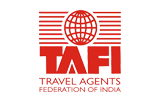
NEWSLETTER-128
Winter Olympic & Paralympic Games 2018
- The Winter Olympics is scheduled from 9 to 25 February
- The Winter Paralympics is scheduled from 8 to 18 March
- Democratic Republic of Korea (DPRK) to participate under unity flag
- Allegations of state-backed doping of Russian athletes persists
Location
The 2018 Winter Olympic and Paralympic Games are taking place in Pyeongchang County, Gangwon Province, approximately 180 km (110 mi) east of Incheon International Airport and 80 km (50mi) south of the Demilitarized Zone (DMZ) between North and South Korea.
A high-speed rail line opened between the capital and Pyeongchang County in December 2017, and is advertised to take 80 minutes from Seoul to the Olympic site. During the Olympics there will be a direct KTX express train from Seoul’s ICN airport to Pyeongchang County. The majority of the venues are served by the Yeongdong Expressway (Expressway No.50), which provides a necessary form of travel between Seoul and the Olympic sites.
Medical facilities in South Korea are of a good standard and hospitals are well equipped. As part of the Olympic Games, around 2,500 medical professionals will be deployed in Pyeongchang County. In addition to this, there will be approximately 300 doctors available and two Olympic designated hospitals; Wonju Severance Christian Hospital and Gangneung Asan Hospital. Emergency medical services are available on 119.
Analysis
South Korea is a generally safe destination for travellers to visit. Despite the headline grabbing geopolitical issues with North Korea, more mundane issues, such as petty crime, are more likely to affect travellers. South Korea has one of the lowest crime rates among developed nations with the most common crimes in the country being non-violent petty theft; such as pickpocketing or theft from hotel rooms. The high profile nature of the Olympic Games makes it an attractive target for criminals due to the high concentration of tourists. Serious offenses are rare, the country has strict gun control laws and the government has taken measures in recent years to increase reporting and prosecution of violence against women.
Recent talks between the North and the South appear to have reduced any imminent conflict risk around the Games. These talks have made an escalation by either side or any unpredictable actions less likely in the shorter term. In addition to the talks, scheduled joint US-South Korea military drills have been postponed until after the Games. This, in turn, reduces the likelihood that the North will launch any further test missiles until after 25 February. Despite this, North Korea may stage a military parade to mark a military anniversary on 8 February, the day before the start of the Games. Although the parade is unlikely to pose a threat to the South there is an increased potential for a strong international media focus on the event. Moreover, some form of provocative action cannot be ruled out in its entirety, as evidence in 2002 when during the FIFA World Cup, that was hosted by Japan and South Korea, North Korean patrol boats crossed the maritime border and engaged with South Korean forces, killing South Korean six soldiers.
As with the conflict risk, North Korean cyber threats appear lower since the two Koreas have engaged in talks. However, past activities indicate that cyber criminals/actors sponsored by Pyongyang will engage in low levels of cyber-crime. This includes Denial-of-Service (DoS) attacks, information gathering, ransomware, etc. These attacks will likely be aimed at South Korean government entities and firms, as well as Western commercial firms that operate or have an interest in the sporting event. Other non-state actors will also likely be drawn to the games, similarly to petty criminals, as a prime target for cyber-crime for financial gain. According to reports, the organizing committee for the Olympics has hired a private cyber security firm to provide security against any hacking attack from North Korea or non-state actors.
There has been no specific intelligence to suggest that the games will be targeted by extremist elements. However, the high profile nature of the event presents an attractive target for lone wolf attacks. Historically, there have been incidents where terrorist organisations have targeted major sporting events: Islamic State affiliated extremists’ targeted Stade de France in Paris during an international football match in 2015 as part of a series of coordinated attacks across the city. In 1988, two North Korea agents detonated an explosive device aboard Korean Air flight 858 from Iraq nine months before the 1988 Seoul Summer Olympic Games. In contrast, North Korea’s leader Kim Jong-un has announced that South Korea hosting the Olympic Games is a source of pride for the entire Korean nation; and has offered assistance.
Medical facilities in South Korea are of a good standard and hospitals are well equipped. As part of the Olympic Games, around 2,500 medical professionals will be deployed in Pyeongchang County. In addition to this, there will be approximately 300 doctors available and two Olympic designated hospitals; Wonju Severance Christian Hospital and Gangneung Asan Hospital. Emergency medical services are available on 119.
Following on from medical standards, Russia has been barred from the coming Olympics due to an alleged state-backed doping program carried out at the last Winter Games. Despite this, 169 Russian athletes will compete in the Games as “Olympic athletes from Russia” and under a neutral flag. Additionally, Russian government officials have been barred from attending the Games with the nation’s flag not being displayed and no anthem being played. As a result, there may be increased cyber activity by both Russian sponsored actors and ordinary Russians online. #NoRussiaNoGames started trending on Twitter back in December 2017, in a movement which was reportedly supported by “millions of Russians”. Despite this, there has been no public threat directed at the Games by Russia or those supporting Russia online.
While South Korea is focusing on the Games, significant security personnel and resources will be taken from other areas of the country, with the exception of the DMZ. An increased focus on security in Seoul could increase the potential for an attack targeting other cities within South Korea to go under the radar.
There is also a risk of civil unrest ensuing. Some Olympic plans, including the two Korean nations marching under a unity flag and forming a joint women's ice hockey team, have proven controversial. While public demonstrations are usually peaceful and well-policed, a number of recent protests have highlighted a growing backlash in public opinion, with both traditional conservatives as well as younger liberals criticising some measures. This has prompted President Moon Jae-in to urge the public to support the Olympic planning. Although the majority of South Koreans welcome North Korea participating, there remains a risk of confrontations and demonstrations.
Travellers in South Korea for the first time may be surprised to find that Google Maps and Apple Maps do not provide adequate coverage due to the country’s strict national security laws. As a result, Google and Apple disable all navigation features throughout the country except for the Seoul metro system. South Korea does have an alternative map service provided by its local search engine, Naver, 지 ë„ (ji do) (https://map.naver.com ), which is similar to Google and Apple maps. Search results will need to be written in Korean Hangul and all locations are provided in Hangul, making navigation for those who do not read and write Korean difficult.
Implications
- Heightened media coverage of perceived threats from international terror groups.
- Heightened potential for Cyber-attacks against Olympic sponsors and South Korean businesses by North Korean and, particularly, Russian actors due to their non-involvement in the games.
- Increase in petty crime.
- Despite current diplomatic rhetoric and historic tensions between Pyongyang, Seoul and Washington; imminent conflict risk during games unlikely.
- Reduction in available accommodation and increased demand for transportation; particularly in Seoul and to the east of the capital.




